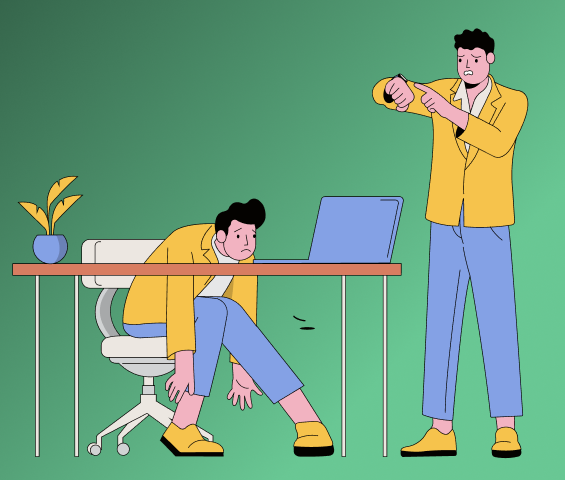Can a Cover Letter Be Two Pages? Tips, Risks, and When It’s Worth It
Can a Cover Letter Be Two Pages?
In today's competitive job market, your cover letter is often your first opportunity to make a lasting impression on potential employers. Explore our Cover Letter Builder to craft a professional and impactful cover letter. It's not just a formality; it's a critical component of your application that can set you apart from other candidates. But a common question arises: How long should a cover letter be? Is it acceptable for a cover letter to extend to two pages?
This comprehensive guide explores the ideal length of a cover letter, delving into when a two-page cover letter might be appropriate and how to make it effective. We'll provide actionable tips to ensure your cover letter is both impactful and professionally appropriate.
The Standard Length of a Cover Letter
One-Page Norm
Traditionally, cover letters are expected to be concise, fitting neatly onto a single page. See examples of concise cover letters for guidance. This standard stems from the busy schedules of hiring managers and recruiters who often sift through numerous applications. A one-page cover letter demonstrates your ability to communicate efficiently and respect the reader's time.
Attention Spans
In an era where attention spans are dwindling, a lengthy cover letter may deter recruiters from reading it in its entirety. Keeping your cover letter brief increases the likelihood that your key qualifications and enthusiasm for the role will be noticed.
Industry Standards
While the one-page rule is generally accepted across industries, some fields may have different expectations. For instance, academia and research positions might anticipate more detailed cover letters due to the complex nature of the roles.
When Is a Two-Page Cover Letter Acceptable?
Extensive Experience
If you're applying for a senior-level or executive position, you might have a wealth of experience and achievements that are relevant to the role. Check out our Cover Letter Examples tailored for executive positions. In such cases, a two-page cover letter can be acceptable to thoroughly convey your qualifications.
Complex Qualifications
Roles that require a specific set of skills or experiences—such as project management of large-scale initiatives—might necessitate a more detailed explanation. Elaborating on complex qualifications can justify a longer cover letter.
Academic and Research Positions
In academia, where positions often require detailed explanations of research, publications, and methodologies, a two-page cover letter might be expected. This allows you to provide a comprehensive overview of your academic contributions.
Risks of Submitting a Two-Page Cover Letter
Potential Negatives
A longer cover letter carries the risk of appearing unfocused or verbose. Employers might question your ability to prioritize information if you're unable to condense your qualifications into one page.
Recruiter Overload
With limited time to review each application, recruiters may skim or skip over longer cover letters. Important details could be missed if they are buried within dense paragraphs.
Formatting Concerns
A two-page cover letter requires careful formatting to maintain readability. Without proper structure, the document can appear overwhelming, reducing its overall effectiveness.
How to Write an Effective Two-Page Cover Letter
Prioritize Content
Focus on including only the most relevant information that directly relates to the job description. Highlight experiences and skills that align with the employer's needs.
Structured Formatting
Use clear headings, bullet points, and ample white space to break up text. This makes your cover letter easier to read and allows key points to stand out.
Personalization
Tailor your cover letter to the specific role and company. Browse our Cover Letter Templates for customizable formats that align with various roles. Mention specific projects or initiatives of the company that resonate with your experience and explain how you can contribute.
Tips for Keeping Your Cover Letter Concise
Focus on Achievements
Emphasize quantifiable accomplishments rather than listing general duties. Use metrics to showcase the impact of your work.
Example: "Increased sales by 25% over six months by implementing a new customer outreach strategy."
Use Clear Language
Avoid industry jargon and complex sentences. Clear and straightforward language ensures your message is understood.
Edit Ruthlessly
Review your cover letter multiple times, trimming unnecessary words and phrases. Consider having a mentor or professional peer review it for clarity and brevity.
Alternatives to a Two-Page Cover Letter
Addendums and Attachments
If you have additional information that's crucial but too lengthy for a cover letter, consider including an addendum or attaching a separate document.
Online Portfolios
Link to an online portfolio or professional website where employers can view your work in more detail.
Interview Opportunities
Express your enthusiasm to discuss your qualifications further in an interview. This shows confidence and a willingness to engage directly.
Conclusion
Determining the appropriate length for your cover letter depends on your unique situation. While the standard one-page cover letter is generally preferred, there are circumstances where a two-page letter is acceptable—even beneficial. If you choose to extend your cover letter, ensure it's necessary and that every word adds value.
Final Advice: Assess the expectations of your industry and the specific role you're applying for. Tailor your cover letter accordingly, keeping it concise, focused, and relevant.
We invite you to share your experiences or questions about cover letter lengths. Feel free to leave a comment or reach out for further guidance.
Related Articles
6 min read
Jan 29, 2025

13+ Professional Excuse Letter Samples: Complete Guide With Templates
Learn to write professional excuse letters with 10+ templates for work/school, expert tips on formatting, timing, and real-world examples.

